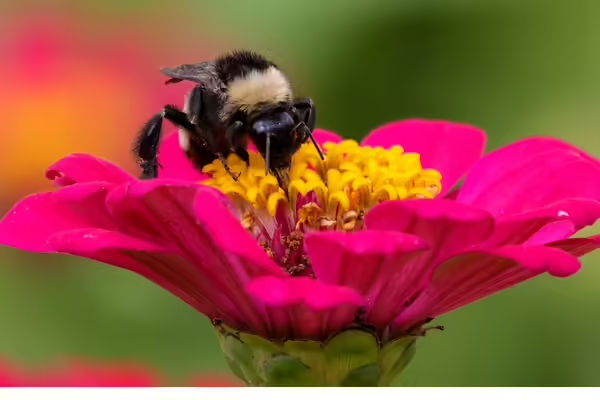
Pollinators such as bees, butterflies, moths, and beetles are vital to our world—they’re responsible for nearly a third of the food we consume and support the growth of more than 80% of flowering plants each year. Their role is crucial not only in sustaining ecosystems but in supporting human life, too! Join University of Illinois Extension and Town of Normal-Illinois Art Station as they celebrate the wonderful world of pollinators. The Pollinator Palooza will be held Saturday, August 2 from 10 a.m.-1 p.m. at the Illinois Art Station located at 101 E Vernon Ave, Normal, IL 61761
This family-friendly event will have something for everyone, including a dozen community organizations offering a variety of activities, games, crafts, and information booths on all things pollinators, plants, and local nature spaces. Step inside the Art Station studios to craft enchanting flying butterflies and a unique Victorian thaumatrope—a mesmerizing spinner featuring a butterfly on one side and its chrysalis on the other.
There is no cost or registration to attend. For more information about this event, check out the events page at go.illinois.edu/LMWevents or on Facebook. Come to learn how you can help save the pollinators that are not only critical to our food supply and human survival, but also make the world a more beautiful and interesting place.
University of Illinois Extension develops educational programs, extends knowledge, and builds partnerships to support people, communities, and their environments as part of the state's land-grant institution. Extension serves as the leading public outreach effort for University of Illinois Urbana-Champaign and the College of Agricultural, Consumer and Environmental Sciences in all 102 Illinois counties through a network of 27 multi-county units and over 700 staff statewide. Extension’s mission is responsive to eight strategic priorities — community, economy, environment, food and agriculture, health, partnerships, technology and discovery, and workforce excellence — that are served through six program areas — 4-H youth development, agriculture and agribusiness, community and economic development, family and consumer science, integrated health disparities, and natural resources, environment, and energy.